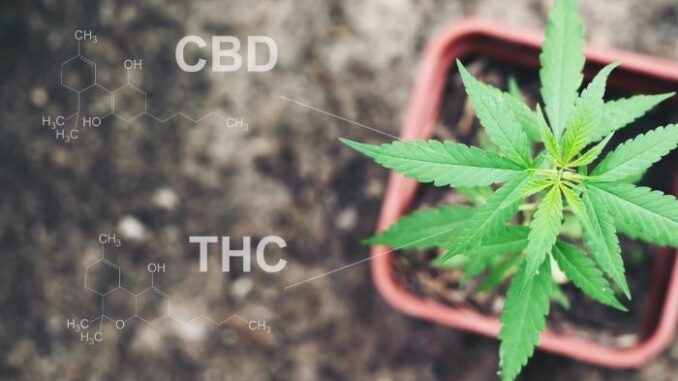
Cannabis, hemp, and marijuana have been used for centuries. Apart from recreational usage, these plants have been used for medicinal purposes even in ancient and medieval times. CBD and THC are cannabinoids that are found, along with between 80 – 100 other cannabinoids, that are found in the cannabis plant that can be extracted for their use.
As the cannabis plant and its derivatives become more mainstream, CBD oil vs medical marijuana will continue to be a highly debated topic. There are many similarities between these two cannabis plants, but also many differences that are important to understand.
CBD oil contains high amounts of Cannabidiol which is one of many, we’re talking 80 to 100, cannabinoids. Medical marijuana is high in THC, Tetrahydrocannabinol. THC and CBD are two of the more than 80 or so cannabinoids or active compounds found in cannabis plants.
Other cannabinoids that you may have heard of are CBG, CBN, Delta-8 THC, THCa, and THCV.
THC is the cannabinoid most associated with having a psychoactive effect that creates the feeling of “being high”. Potential effects are euphoria, sedation, and relaxation, but also some can become a bit disoriented and paranoid. There are also many beneficial uses that THC provides someone with, like making someone hungry when they have a condition like cancer where it is difficult to eat, while also providing nausea relief from some of the medication that is prescribed.
CBD Oil vs Medical Marijuana
Cannabis and hemp products are now legally permitted for use in many different countries around the world. People are also trying to grow these plants in their gardens and are more curious about their health and recreational effects.
Two of the important chemical compounds found in the Cannabis genus plant include CBD (Cannabidiol) and THC (Tetrahydrocannabinol).
The CBD cannabinoid is used for CBD oil, and many other CBD products like CBD gummies, CBD capsules, CBD topicals, CBD isolate, CBD drinks, CBD cigarettes, and CBD flower.
While CBD products may cause your body to feel more relaxed, and sometimes sleepy, CBD products do not cause any euphoria or sedition as the amount of THC, less than 0.3%, is a negligible amount.
There are three spectrums of CBD that you should also be aware of. Full-spectrum CBD utilizes the entire cannabis plant and is the spectrum associated with the Entourage Effect which is the synergistic interaction of the cannabinoids, flavonoids, terpenes, and fatty acids naturally found in cannabis.
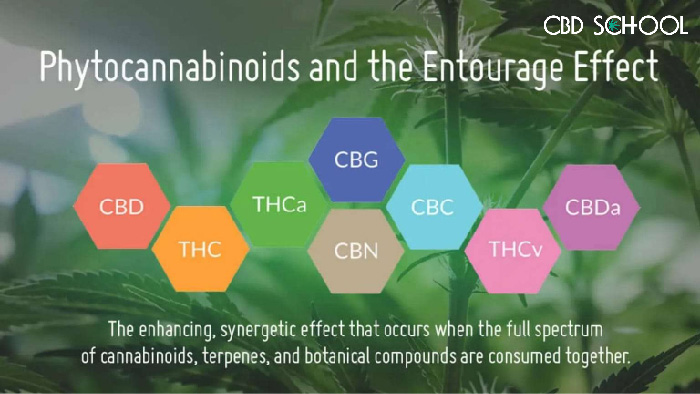
The other two types of CBD are CBD isolate, which has all other cannabinoids, flavonoids and other parts of the plant stripped so that what’s left is a white powder substance that solely contains CBD.
Broad-spectrum CBD has all of the cannabinoids, flavonoids, and terpenes, but this spectrum has the THC stripped out.
CBD does not create a psychoactive effect but does seem to relax your body and assist with getting you to homeostasis. CBD also possesses medicinal properties that assist with inflammation in the body, chronic pain, sleep issues, and much other health conditions.1
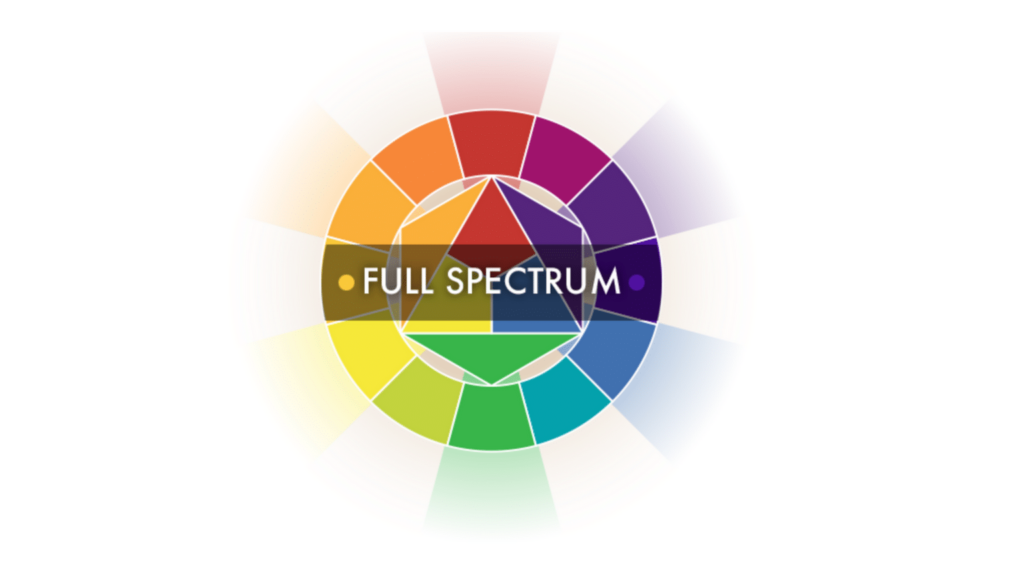
THC or Tetrahydrocannabinol
THC is the cannabinoid found in the Cannabis plants that is responsible for its psychoactive properties and can produce a high effect.
The term medical marijuana is really just marijuana that is sold through a state’s medical marijuana program, as opposed to a state’s recreational marijuana program. Beyond that difference, there isn’t much difference between recreational and medical marijuana.
THC, when ingested by the human body, will bond to the brain’s CB1 receptors. Subsequently, it can produce euphoria.
CBD or Cannabidiol
CBD or cannabidiol cannot bind itself to the brain’s receptors. Therefore, it does not produce any kind of highs or sedation that THC produces.
Therefore, the use of CBD oil or other CBD products high in cannabidiol will not affect the mental state of a person.
It will not cause sedition or euphoria as it does not bind to the receptors of the brain. It can also be used for reducing sedation, euphoria, or other unwanted effects of THC.
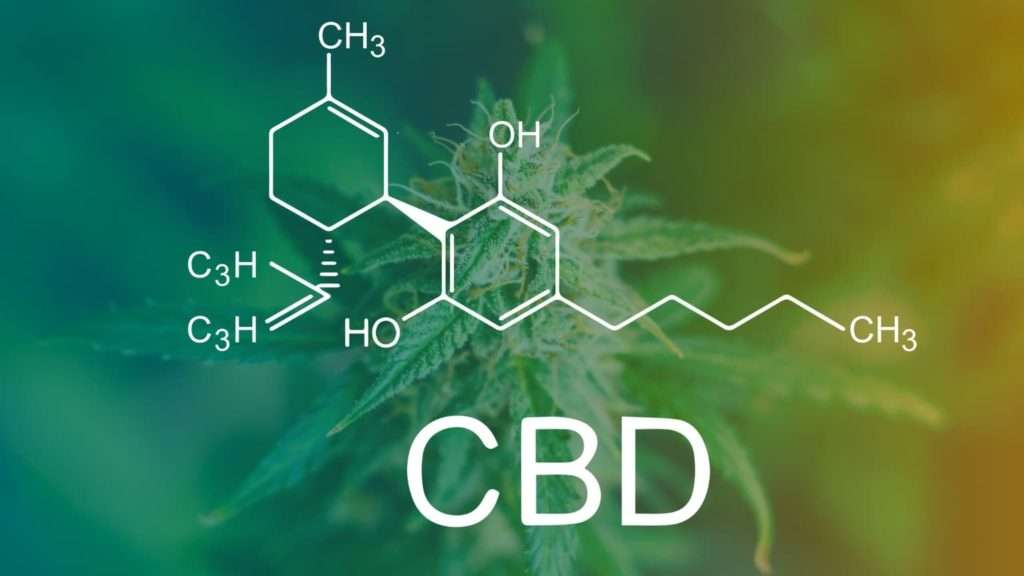
Chemical Structure of CBD and THC
Both THC and CBD have the same strength and formula. They both contain 30 atoms of hydrogen, 21 atoms of carbon, and 2 atoms of oxygen. However, the physical arrangement of the two molecules is different. It is the reason why they both have different effects on the human body. However, both THC and CBD affect the neurotransmitters of the human body and can affect memories, sleep, and pain to varying extents.
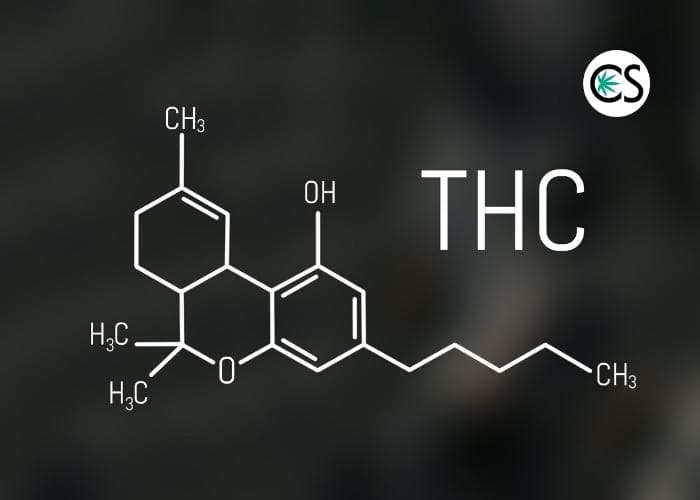
The Legality of CBD and THC in the US
CBD or cannabidiol is still classified as a “Schedule One” medicine and drug by the Food and Drug Administration (FDA) and its use is restricted, kind of, but not really. While CBD is still classified this way, the Farm Bill made growing hemp federally legal, and since the FDA doesn’t fully recognize CBD as a supplement, CBD is in a gray area.
The only thing the FDA currently oversees when it comes to CBD is how brands label and market CBD products. Brands can’t claim that CBD is a cure or treatment for a disease or ailment and until further research is performed, and the FDA takes CBD out of the gray area, it will remain in a wonky situation. It should also be mentioned that CBD products are not legally allowed to contain THC above 0.3%.
Currently, Thirty-three states in the US have passed some form of marijuana law. Since marijuana is still federally illegal, the production of marijuana products is supervised under the drug laws of each state.
Both THC and CBD contain certain properties to provide medicinal effects. However, as stated, CBD does not cause sedation or euphoria that may occur due to the ingestion of THC.
The Food and Drug Administration of the US authorized the use of a prescription medication containing CBD for the first time in the year 2018. The drug was called Epidiolex. It is used and prescribed for the treatment of epilepsy.
Health Benefits of CBD and THC
So far, CBD has not been approved for treating any other condition. CBD has may have potential advantages when used for treating a variety of medical conditions while not causing any euphoria.
Studies have shown that CBD may be helpful in conditions including:
THC is also helpful in certain medical conditions. It can provide relief in conditions including:
InsomniaGlaucomaMuscular spasticityPain.NauseaReduced appetite
Conclusion
Marijuana was a prohibited substance sometime ago, however many states in the US and countries around the world now allow the use of medical and recreational marijuana today.
However, following the federal law of the US, it is still not fully legal. The Farm Bill allows the production and sale of hemp products to a certain extent. There are certain rules that have to be followed when you want to sell or purchase a product containing CBD and THC.
You need to check the laws of the state where you live to find out more about what conditions apply. Speak with your physician to learn more about how CBD will benefit you, and if you take prescription medication you should be aware that CBD can have a drug interaction.
references
1National Academies of Sciences, Engineering, and Medicine; Health and Medicine Division; Board on Population Health and Public Health Practice; Committee on the Health Effects of Marijuana: An Evidence Review and Research Agenda. The Health Effects of Cannabis and Cannabinoids: The Current State of Evidence and Recommendations for Research. Washington (DC): National Academies Press (US); 2017 Jan 12. 4, Therapeutic Effects of Cannabis and Cannabinoids. Available from: https://www.ncbi.nlm.nih.gov/books/NBK425767/



Be the first to comment